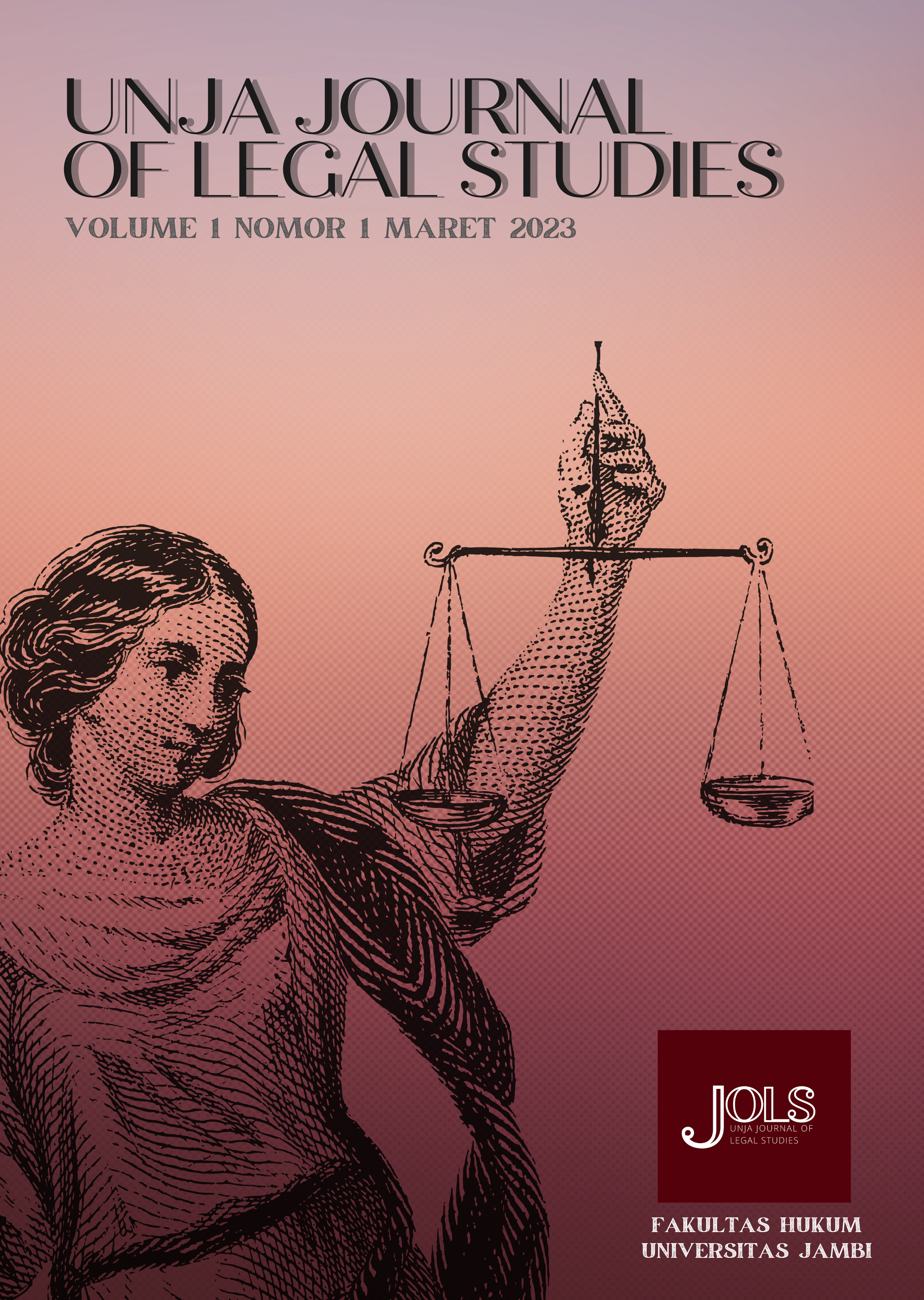Penerapan Sanksi Terhadap Narapidana Yang Terjaring Menggunakan Handphone di Lembaga Pemasyarakatan
Main Article Content
Abstract
The purpose of this study was to determine the application of disciplinary sanctions against prisoners who use cellphones at the Jambi Class IIA Penitentiary and the obstacles faced in fostering prisoners who have implications for using cellphones. The research method in this research is empirical juridical. The results showed that the sanctions against prisoners who use cellphones at the Jambi Class IIA Penitentiary are in the form of being put into a seclusion cell for 2 (two) times 6 (six) days and not getting the rights of prisoners and the obstacles faced by the Jambi Class IIA Penitentiary in providing guidance to prisoners who have implications for violations of the rules using cellphones, namely the lack of officers who carry out coaching, from the prisoners themselves and the lack of infrastructure facilities in correctional institutions. Suggestions It is necessary to make improvements to the rules of discipline regarding the explanation of owning, using, and carrying communication devices because there are difficulties in proving prisoners who use cellphones belonging to other prisoners and there are differences in sanctions in correctional rules and implementing rules. There needs to be special coaching for prisoners who violate the rules.
Downloads
Article Details

This work is licensed under a Creative Commons Attribution 4.0 International License.
All writings published in this journal are personal views of the authors and do not represent the views of this journal and the author's affiliated institutions. Author(s) retain copyrights under the licence of  Creative Commons Attribution-ShareAlike 4.0 International License.
References
Diansyah, Hendri et. al â€Kebijakan Hukum Pidana Terhadap Tindak Pidana Cardingâ€. Pampas: journal Of Criminal Law, Volume 3 No. 1 (2022). Hlm. 16. DOI: https://doi.org/10.22437/pampas.v3i1.17704.
Mansur, Dikdik M. Arief dan Elisatris Gultom. Cyber Law Aspek Hukum Teknologi Informasi, Cet. 2. Bandung: PT. Refika Aditama, 2009.
Sasmita, Tiwi. et.al. “Pelaksanaan Pembinaan Narapidana Anak Yang Dijatuhi Pidana Penjara Jangka Pendek di Lembaga Pembinaan Khusus Anak (LPKA)â€. Pampas: journal Of Criminal Law, Volume 2 No. 1 (2021). DOI: https://doi.org/10.22437/pampas.v2i1.12685.
Subiakto, Henry dan Rachmah Ida. Komunikasi Politik, Media, Dan Demokrasi, Cet. 2. Jakarta: Prenadamedia Group, 2014.
Supriadi, Etika & Tanggung Jawab Profesi Hukum Di Indonesia, Cet. 7, Sinar Grafika, Jakarta, 2018, hlm. 12.Nasution, Bahder Johan. Metode Penelitian Ilmu Hukum. Bandung: Mandar Maju, 2008.
Utoyo, Marsudi. â€Konsep Pembinaan Warga Binaan Pemasyarakatan Analysis Of Prisoners Guidance To Reduce Levelâ€. Pranata Hukum, Volume 10 No. 1 (2015). http://jurnal.ubl.ac.id/index.php/PH/article/view/552.
Veronica, Ayu. et. al. â€Penegakan Hukum Pidana Terhadap Penyelundupan Baby Lobsterâ€. Pampas journal Of Criminal Law, Volume 1 No. 3 (2020). DOI: https://doi.org/10.22437/pampas.v1i3.11085.
Zain, M. Mizan Azrori. “Pola Pembinaan Narapidana Narkotika di Lembaga Pemasyarakatan Kelas IIA Jambiâ€. Skripsi. Jambi: Fakultas Hukum Universitas Islam Sulthan Thaha Saidfuddin (2020).

